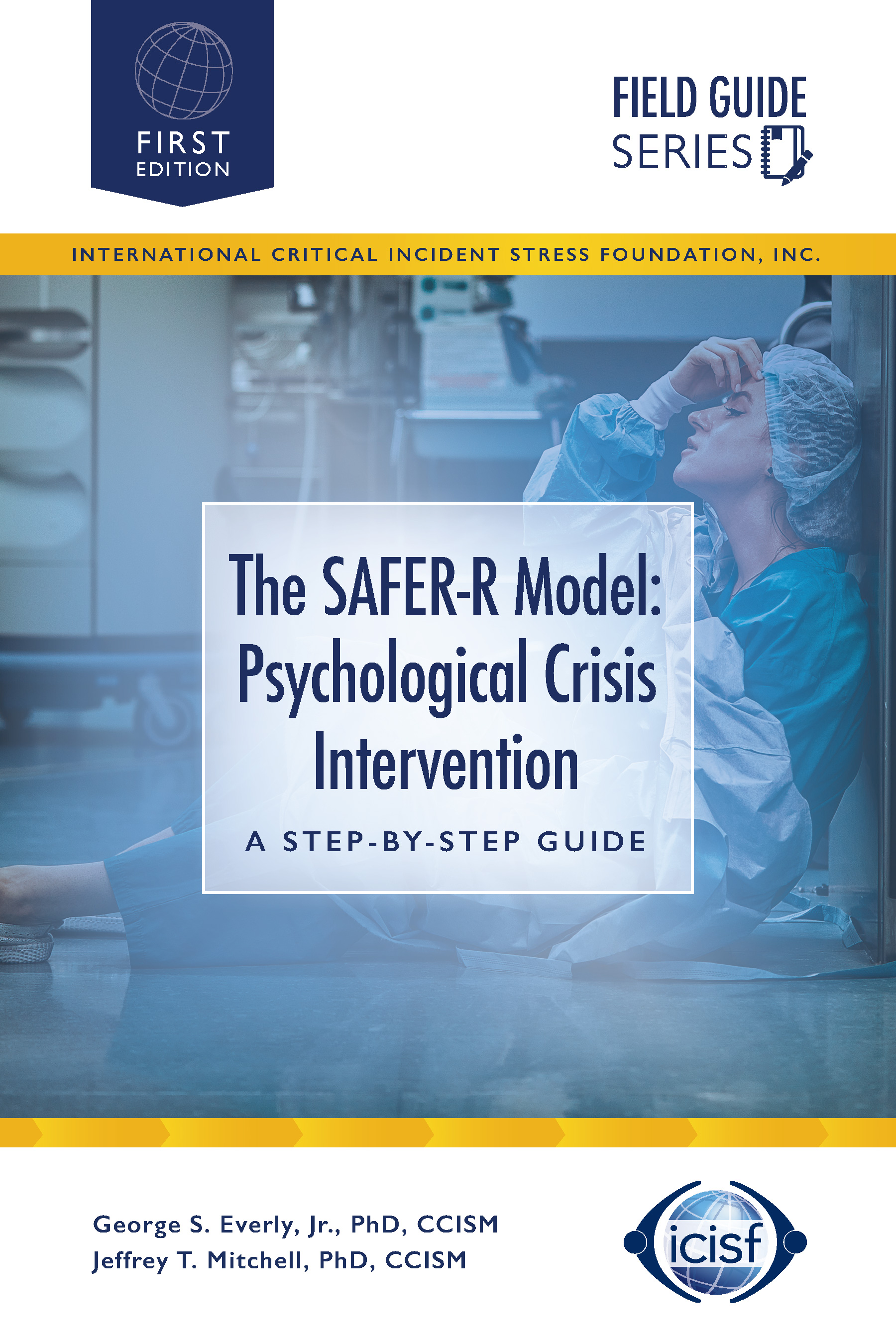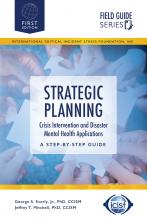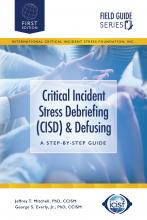The SAFER-R Model
The SAFER-R Model
By: George S. Everly, Jr., PhD, ABPP, CCISM, Jeffrey T. Mitchell, PhD, CCISM
The SAFER-R Model – Psychological Crisis Intervention serves as a practical field guide to the SAFER-R model of psychological first aid (PFA). It is written in digest and outline form, for providing psychological crisis intervention to individuals. This guide is designed for use by emergency services and military peer support, educators, medical and nursing professionals, as well as mental health clinicians.
Title information
The SAFER-R Model – Psychological Crisis Intervention is designed to provide the reader with a simple set of guidelines for the provision of psychological first aid (PFA). The model of psychological first aid (PFA) for individuals presented in this volume is the SAFER-R model developed by the authors. Arguably it is the most widely used tactical model of crisis intervention in the world with roughly 1 million individuals trained in its operational and derivative guidelines. This model of PFA is not a therapy model nor a substitute for therapy. Rather it is designed to help crisis interventionists stabile and mitigate acute crisis reactions in individuals, as opposed to groups. Guidelines for triage and referrals are also provided. Before plunging into the step-by-step guidelines, a brief history and terminological framework is provided. Lastly, recommendations for addressing specific psychological challenges (suicidal ideation, resistance to seeking professional psychological support, and depression) are provided.
George S. Everly, Jr., PhD, ABPP, CCISM
George S. Everly, Jr., PhD, CCISM is an award-winning author and researcher. In 2016, he was ranked #1 published author in the world by PubMed PubReMiner in the field of crisis intervention. He holds appointments as Professor in the Department of International Health (affiliated) at the Johns Hopkins Bloomberg School of Public Health, Associate Professor (part time) in Psychiatry at the Johns Hopkins School of Medicine, and Professor of Psychology at Loyola University in Maryland (core faculty). He is considered one of the founding fathers of the field of disaster mental health. He was a co-founder of the Dept of Psychiatry at Union Memorial Hospital and served on the management committee 12 years. In addition, he has served on the adjunct faculty of the Federal Emergency Management Agency, the FBI’s National Academy at Quantico, Virginia, and ATF’s Peer Support Team. He is an advisor to the Hospital Authority of Hong Kong. Dr. Everly is co-founder of, and serves as a non-governmental representative to the United Nations for, the International Critical Incident Stress Foundation, a non-profit United Nations-affiliated public health and safety organization. He was Senior Advisor on Research in the Office of His Highness the Amir of Kuwait. Prior to these appointments, Dr. Everly was a Harvard Scholar, visiting in psychology, Harvard University; a Visiting Lecturer in Medicine, Harvard Medical School; and Chief Psychologist and Director of Behavioral Medicine for the Johns Hopkins Homewood Hospital Center.
Jeffrey T. Mitchell, PhD, CCISM
Jeffrey T. Mitchell, PhD, CCISM is Clinical Professor of Emergency Health Services at the University of Maryland in Baltimore County, Maryland. He is a member of the Graduate Faculty of the University of Maryland. He is a co-founder and President Emeritus of the International Critical Incident Stress Foundation. He earned his Ph.D. in Human Development from the University of Maryland. He served for six years as a regional coordinator of Emergency Medical Services for the Maryland Institute for Emergency Medical Services Systems. He was responsible for the development of the Emergency Medical Services System in five southern Maryland counties. After serving as volunteer paramedic / firefighter for ten years, he developed a comprehensive, integrated, systematic, and multi-component crisis intervention program called “Critical Incident Stress Management.” Today, that program reduces traumatic stress in many countries.
He has authored more than 275 articles and 19 books in the stress and crisis intervention fields. He serves as an adjunct faculty member of the Emergency Management Institute of the Federal Emergency Management Agency. He is a faculty member of Florida Institute of Technology and teaches a course on the psychology of disasters. Dr. Mitchell is a faculty member in the school of education, Johns Hopkins University. He is a reviewer for the Journal of the American Medical Association (JAMA), Disaster Medicine, the Journal of Emergency Medical Services (JEMS) and the International Journal of Emergency Mental Health. He received the Austrian Red Cross Bronze Medal for his work in Crisis Intervention in the aftermath of the Kaprum, Austria train tunnel fire. The Association of Traumatic Stress Specialists approved Dr. Mitchell as a Certified Trauma Specialist.
The United Nations appointed him to the United Nations Department of Safety and Security Working Group on Stress. He has consulted on stress, crisis, and trauma topics in 28 nations and in every one of the 50 United States.



